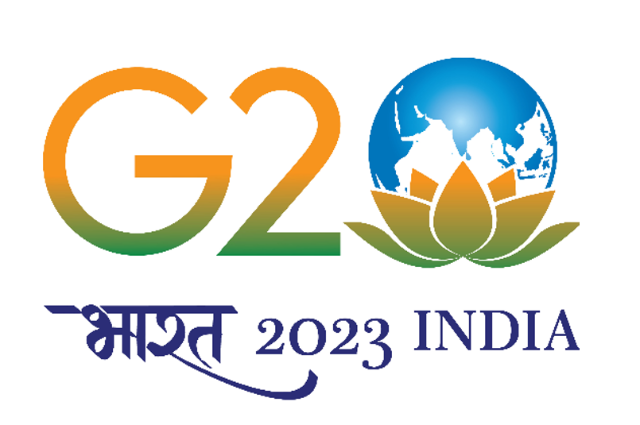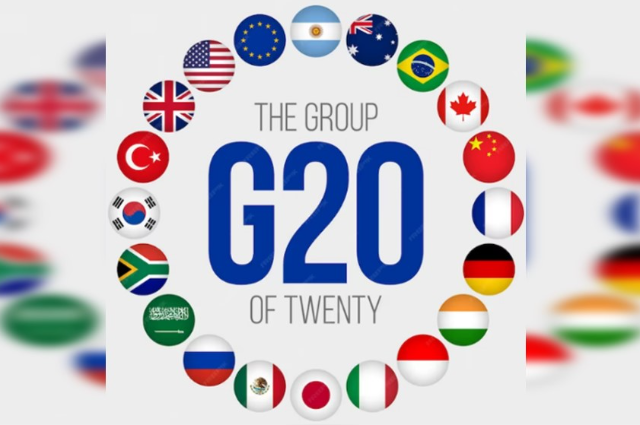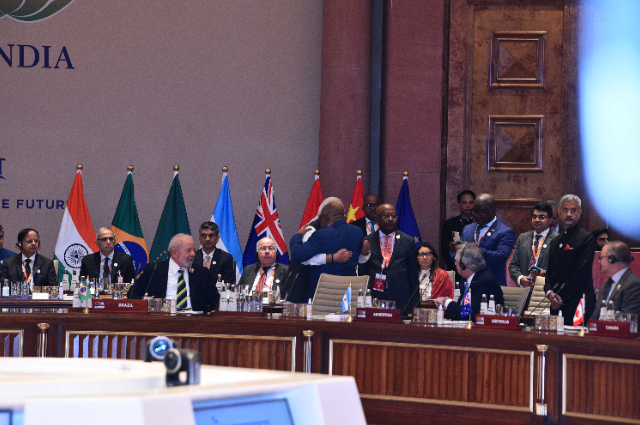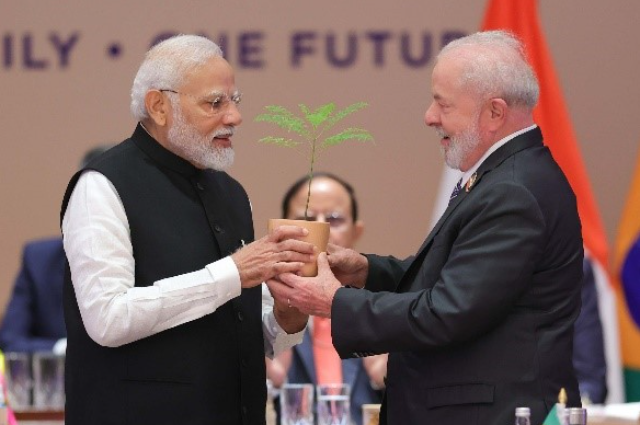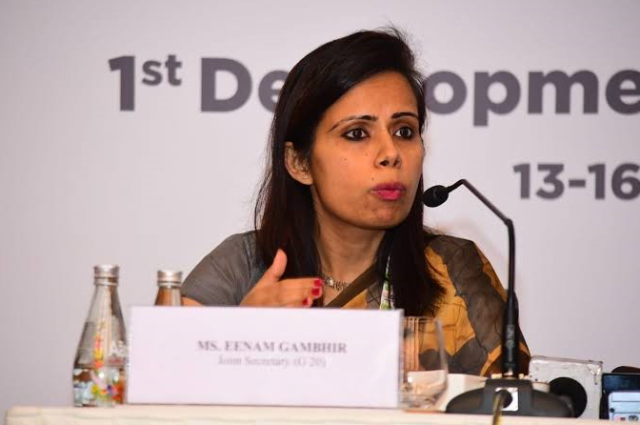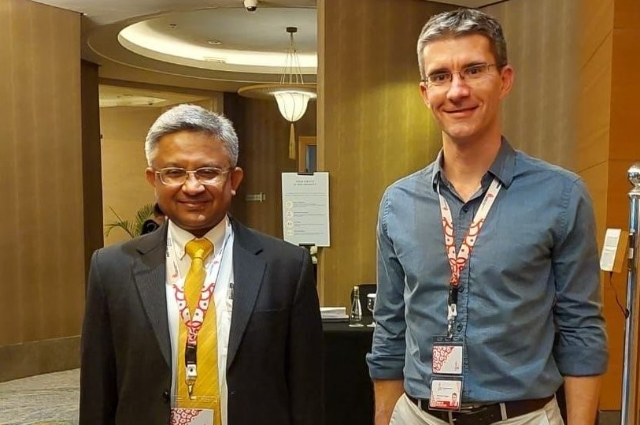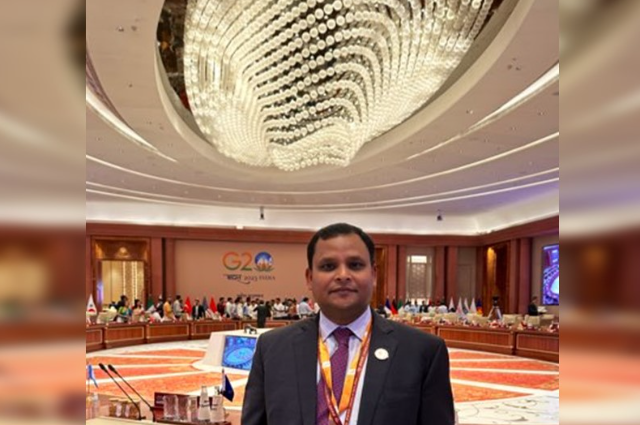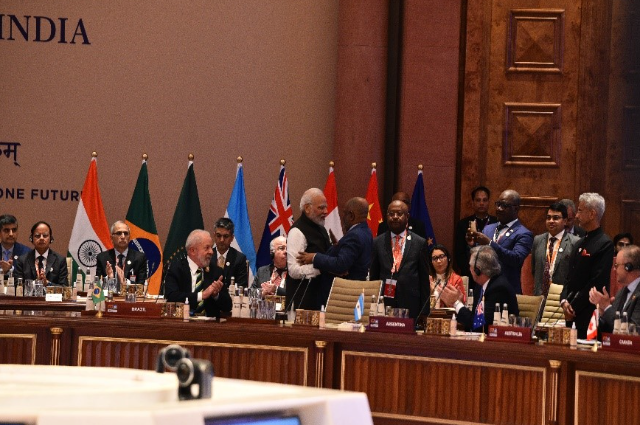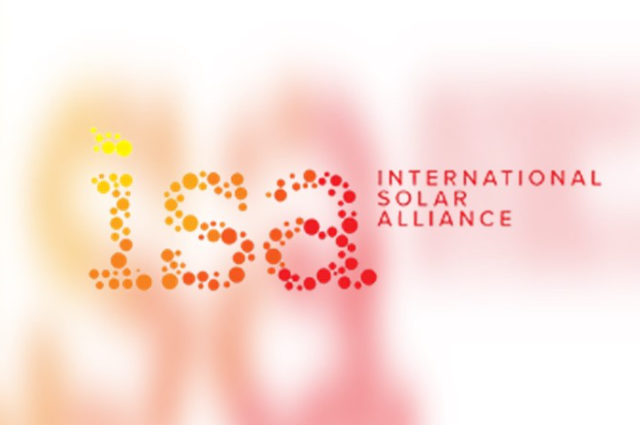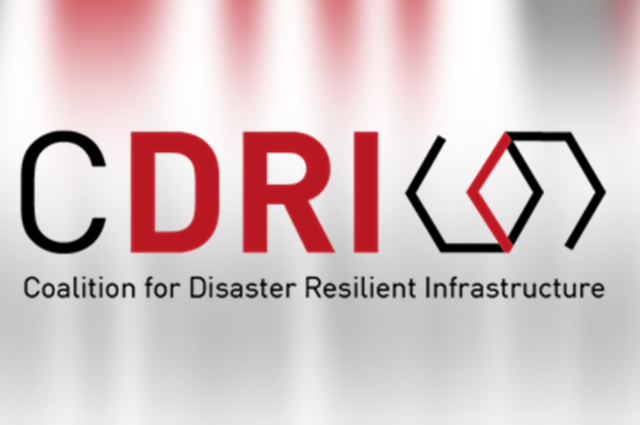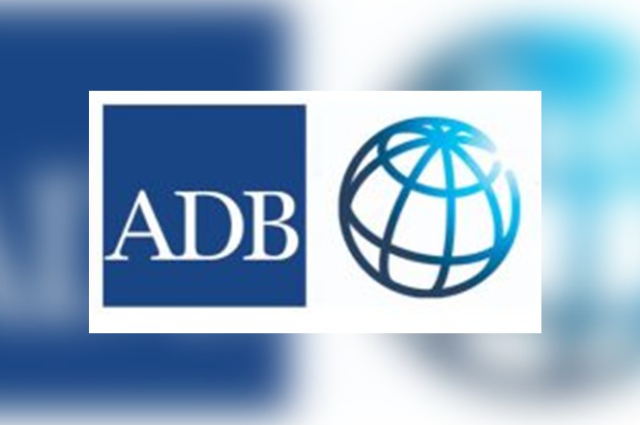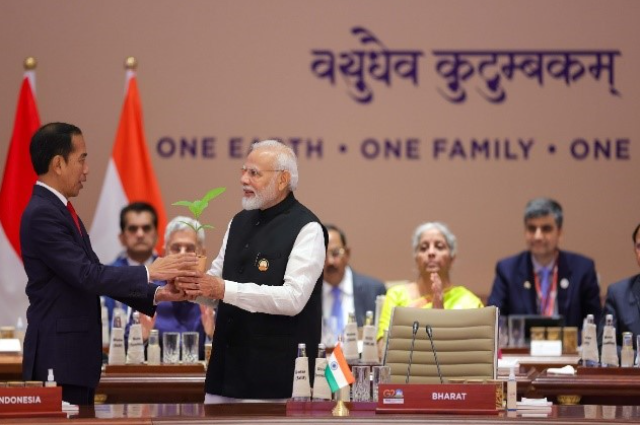Introduction
India's G20 Presidency in the current year offers a unique opportunity for the nation to lead a collaborative effort in addressing a multitude of intricate and interconnected challenges. This approach emphasizes the importance of prioritizing the aspirations and requirements of the developing world. The challenges encompass a broad spectrum, including the impact of the COVID-19 pandemic, disruptions in supply chains, climate change, risks to food and energy security, geopolitical tensions, rising inflation, and the looming threat of a debt crisis. These factors collectively contribute to a slowdown in the global economy and heightened uncertainty.
India has chosen the theme "Vasudhaiva Kutumbakam" or "One Earth - One Family – One Future" for its G20 Presidency, reflecting the aim of fostering unity, which is crucial for effectively addressing these global challenges together. Prime Minister Narendra Modi envisions India's G20 agenda as "inclusive, ambitious, action-oriented, and decisive," emphasizing that India's achievements and experiences play a crucial role in tailoring solutions on a global scale.
Origin and Development
The G20 was established in 1999 following the Asian financial crisis as a platform for Finance Ministers and Central Bank Governors to deliberate on global economic and financial matters. Subsequently, the G20 was elevated to the level of Heads of State/Government and was officially designated as the primary forum for international economic collaboration. Since 2011, the G20 Summit has been conducted annually, with leadership rotating among member countries. Initially, the G20 primarily concentrated on broad macroeconomic policies, but it has since broadened its scope to encompass areas such as trade, climate change, sustainable development, energy, environment, and anti-corruption.
Historically how have things shaped up at G20?
The G20 represents the most recent effort in a series of post-World War II initiatives designed to foster international cooperation in economic policy. These initiatives encompass institutions like the International Monetary Fund, the World Bank, and the current World Trade Organization, often referred to as the "Bretton Woods twins." The idea of the G20 was first introduced during the G7 summit in Cologne in June 1999 and was formally established during a meeting of G7 Finance Ministers on September 26, 1999, followed by its inaugural meeting on December 15-16, 1999, in Berlin. The inaugural chairman was Paul Martin, the Canadian finance minister, and the host of this initial meeting was Hans Eichel, the German finance minister.
In a 2004 report authored by Colin I. Bradford and Johannes F. Linn of the Brookings Institution, it was suggested that the G20's formation was primarily driven by Hans Eichel, who was simultaneously serving as the chair of the G7. However, Bradford later clarified that Paul Martin, the Finance Minister of Canada at the time (and future Prime Minister), played a crucial role in architecting the G20's formation at the finance minister level. Martin also proposed elevating the G20 discussions to the leaders' level summits.
Organisational Framework
The G20 operates without a formal charter or secretariat. The Presidency, with support from the countries preceding and succeeding it (known as the Troika), is responsible for establishing the agenda for each year's Summit. Leading the G20 process are the Sherpas, appointed by member countries to serve as personal representatives of their respective leaders. These Sherpas oversee negotiations throughout the year, engage in discussions regarding Summit agenda items, and coordinate the substantive work of the G20.
The G20's activities are divided into two tracks: the Finance Track and the Sherpa Track. Within these tracks, there are specialised working groups with a thematic focus, comprising representatives from member countries, invited/guest nations, and various international organisations. These working groups convene regularly during each President's term. The agenda is also influenced by contemporary economic developments and previous years' objectives and tasks. The G20 operates with a multi-year mandate to ensure institutional continuity.
What is the G20 and what are its functions?
The G20, also known as the Group of Twenty, is composed of 19 nations (including Argentina, Australia, Brazil, Canada, China, France, Germany, India, Indonesia, Italy, Japan, Republic of Korea, Mexico, Russia, Saudi Arabia, South Africa, Turkey, United Kingdom, and the United States) along with the European Union.
These member states collectively account for approximately 85 percent of the worldwide GDP, more than 75 percent of global trade, and roughly two-thirds of the global population. Serving as a platform for global economic collaboration, it plays a significant role in influencing and enhancing the global framework and governance concerning crucial international economic matters.
Some of its primary goals encompass the following:
- Coordinating policies among its members to achieve global economic stability and sustainable growth.
- Advancing financial regulations that mitigate risks and prevent future financial crises.
- Establishing a fresh international financial structure.
G20 Contribution to the 2030 Agenda
As the foremost platform for global economic collaboration, the G20 plays a pivotal role in advancing the 2030 Agenda for Sustainable Development, which encompasses the Sustainable Development Goals (SDGs) and the Addis Ababa Action Agenda (AAAA).
Beyond its primary economic mission, the G20's efforts extend to addressing critical global social and environmental issues, thereby contributing to the provision of worldwide public benefits and facilitating the integration of less affluent and developing nations into a sustainable global economy.
Together, G20 member nations represent approximately 85% of the world's total gross domestic product (GDP), 75% of international trade, 80% of global carbon dioxide emissions (CO2), and 70% of global plastic production. Additionally, they account for two-thirds of global outward investment flows and constitute the primary source of international development aid, while also serving as the origin of three-quarters of global remittances, all while collectively representing over two-thirds of the world's population and more than half of the global impoverished population.
When it was established as a high-level forum in 2008 following the global financial crisis, the G20's primary focus was on the restoration of economic growth, the assurance of global stability, and the promotion of resilience. Over time, the G20 has expanded its agenda to encompass societal and environmental challenges that have sustainable economic implications, ranging from the prevention of pandemics to the reduction of disparities.
To fulfill its objectives, the G20 primarily relies on:
- International policy collaboration and synchronization to strengthen economic growth, reinforce resistance to shocks, prevent future crises, and advance sustainable development. This is done with the backing of prominent global institutions and through an improved global governance framework.
- The coordination of domestic policy reforms to optimize collective synergies and manage their consequences for the mutual benefit of both the G20 and the global community.
- Setting the agenda and serving as a role model by reaching consensus on shared principles, instigating reforms and inventive collective initiatives and tools, bridging voids in global standard-setting, and providing global common assets.
- Facilitating the exchange of knowledge and promoting collaboration among countries in the Global South, as well as triangular cooperation, as supplementary approaches to realize the 2030 Agenda, address worldwide issues, and enhance capabilities in developing nations.
- Engaging with the broader international community through partnerships and multi-stakeholder discussions to disseminate knowledge and elevate public consciousness regarding global challenges.
G20s work on the international financial architecture
In 2012, the G20 formed the International Financial Architecture Working Group (IFAWG) with the aim of giving significant political support and influence to this reform program. In 2016, the G20 acknowledged the necessity for the global financial and monetary system to address the changing challenges posed by increased capital flows and fluctuations in asset prices, along with the resulting financial consequences, amidst the context of differing monetary policies in numerous nations. The IFAWG subsequently reached a consensus on practical measures in its successive work plans.
Notable accomplishments in this domain up to now comprise of:
- Widespread consensus among G20 member nations to maintain the strength of the IMF through a quota-based and adequately funded approach, ensuring its central role in the Global Financial Safety Net (GFSN). In doing so, G20 members are contributing to enhanced collaboration between the IMF and the Regional Financing Arrangements, while respecting their respective mandates.
- Acknowledgment of the significance of ongoing oversight of cross-border capital flows and the exploration of tools to help nations leverage their benefits while mitigating associated risks. The G20 has recognized the IMF's Institutional View on capital flows as pivotal in providing a systematic and coherent macroeconomic policy framework to guide its 189 member countries in effectively managing capital flows, all while taking into account country-specific circumstances, including the current context of potential capital flow reversals.
- The G20 has additionally offered significant political support to the reform endeavours of international development banks, following the governance structures of its member nations and in alignment with the banks' mandates. In 2019, G20 Finance Ministers embraced the report from the multilateral development banks (MDBs) regarding cost-effectiveness. They expressed their anticipation for continued efforts in harmonising relevant, cost-effective indicators that ultimately yield tangible advantages.
G20: Host Countries so far and Presidency tenure of different nations
Below mentioned is a reference table for host countries and with timelines on their tenure for holding the G20 Presidency.
| Host country | Host city |
| 14–15 November 2008 | United States |
| 2 April 2009 | United Kingdom |
| 24–25 September 2009 | United States |
| 26–27 June 2010 | Canada |
| 11–12 November 2010 | South Korea |
| 3–4 November 2011 | France |
| 18–19 June 2012 | Mexico |
| 5–6 September 2013 | Russia |
| 15–16 November 2014 | Australia |
| 15–16 November 2015 | Turkey |
| 4–5 September 2016 | China |
| 7–8 July 2017 | Germany |
| 30 November – 1 December 2018 | Argentina |
| 28–29 June 2019 | Japan |
| 21–22 November 2020 | Saudi Arabia |
| 30–31 October 2021 | Italy |
| 15–16 November 2022 | Indonesia |
| 9–10 September 2023 | India |
| 18–19 November 2024 | Brazil |
| TBD 2025 | South Africa |
| TBD 2026 | United States |
India's G20 Presidency
Background and preparations that were yet to happen
Initially, India was designated to be the host of the G20 summit in 2021, while Italy was set to host it in 2022. During the 2018 G20 summit in Buenos Aires, Argentina, Prime Minister Narendra Modi made a request for Italy to host the summit in 2021, allowing India to host it in 2022, marking the 75th anniversary of India's independence. Italy agreed to this arrangement, citing the positive momentum in their bilateral relations.
However, in response to a request from Indonesian Foreign Minister Retno Marsudi, India decided to exchange its G20 presidency with Indonesia. This decision was made because Indonesia was also slated to chair the Association of Southeast Asian Nations (ASEAN) in 2023.
Presidency and chairing
The G20 New Delhi Summit is under the leadership of India's Prime Minister, Narendra Modi. India's term as the presiding nation began on December 1, 2022, leading up to the summit in the third quarter of 2023. The official transfer of presidency took place during a ceremony in which the G20 Presidency gavel was passed from Indonesian President Joko Widodo to Indian Prime Minister Modi at the conclusion of the Bali summit. Indonesia held the presidency in 2022.
Indian Prime Minister Modi formally passed on the G20 presidency to Luiz Inácio Lula da Silva, the President of Brazil. India will retain this position until November 30, 2023.
India's G20 Goals to be achieved and priority checklist
- Green Development, Climate Finance & LiFE: India places a strong emphasis on addressing climate change, particularly by prioritizing climate finance and technology, and by ensuring equitable energy transitions for developing nations. Additionally, India has introduced the LiFE movement, which advocates for eco-friendly practices rooted in India's sustainable traditions.
- Accelerated, Inclusive & Resilient Growth: Give attention to domains with the capacity to induce significant changes in structure, such as assisting small and medium-sized businesses in international trade, advocating for labour rights and well-being, tackling the worldwide skills deficit, and establishing all-encompassing agricultural value networks and food systems.
- Accelerating Progress on SDGs: Renewed dedication to attaining the objectives outlined in the 2030 Agenda for Sustainable Development, with a specific emphasis on mitigating the repercussions of the COVID-19 pandemic.
- Technological Transformation & Digital Public Infrastructure: Advocating for a technology approach that prioritizes humanity and enhancing the exchange of information in domains like digital public infrastructure, financial accessibility, and the application of technology for development in fields such as agriculture and education.
- Multilateral Institutions for the 21st century: Initiatives aimed at overhauling multilateralism and establishing a global system that is more responsible, all-encompassing, and reflective of contemporary demands for addressing challenges in the 21st century.
- Women-led Development: Prioritising comprehensive advancement and progress, with a particular concentration on enhancing the empowerment and presence of women to enhance socio-economic development and attain the Sustainable Development Goals (SDGs).
Planning and logistics management this time for G20 in India
The Indian government allocated Rs. 990 crore (equivalent to US$120 million) for the G20 activities. To ensure the security of the event, the government has dispatched 130,000 security personnel, which includes 80,000 police officers from the Delhi Police Force.
In the Delhi restrictions, all educational institutions, offices, workplaces, markets, dining establishments, and non-food retail stores were directed to shut down for a period of three days. Simultaneously, traffic guidelines were issued concerning road movement, e-commerce deliveries were limited to the purchase of medicines and essential groceries within the jurisdiction of the New Delhi Municipal Council (NMDC), and individuals were advised to remain at their residences.
Indian foreign service officers: the fantastic four who helped G20 Consensus
India's success in achieving a consensus during the G20 Leaders Summit, following extensive and challenging negotiations, can be attributed to the pivotal roles played by four diplomats from the Indian Foreign Service. These diplomats had collaborated closely with Amitabh Kant, India's G20 sherpa.
Nagaraj Naidu Kakanur, who currently holds the position of joint secretary at the G20 Secretariat, is an Indian Foreign Service (IFS) officer from the 1998 batch. In his role as joint secretary at the G20 Secretariat, he serves as the coordinator for various initiatives, including those related to anti-corruption, culture, development, digital economy, education, foreign ministers, and the tourism working group.
Kakanur possesses extensive experience in China, having completed four assignments there and becoming fluent in the Chinese language. He is passionate about yoga and fitness. His previous service at the United Nations has honed his ability to navigate challenging negotiations and draft effectively, contributing significantly to his role.
- Enam Gambhir, Joint Secretary of the G20 Secretariat
Enam Gambhir, who currently serves as the joint secretary of the G20 Secretariat, belongs to the 2005 batch of the Indian Foreign Service. Proficient in the Spanish language, she boasts significant expertise gained from various crucial assignments in multiple nations.
Additionally, she has handled matters concerning Pakistan, Afghanistan, and Iran. Gambhir's double master's degrees in Mathematics and Advanced International Security played a pivotal role in her adept handling of significant obstacles during the negotiation process.
- Abhay Thakur, additional secretary, G20 Secretariat
Thakur, a diplomat who transitioned from engineering, entered the Indian Foreign Service (IFS) in 1992. This unpretentious diplomat collaborated closely with Kant and actively participated in all negotiations.
His extensive background played a crucial role in successfully achieving agreement on numerous matters. Thakur has also served in various Indian missions abroad, including Moscow, London, Ho Chi Minh City, and held the position of India's High Commissioner to Nigeria and Mauritius.
- Ashish Kumar Sinha, Joint Secretary, G20
Ashish Kumar Sinha, currently holding the position of joint secretary at the G20 Secretariat, is a seasoned diplomat with over 18 years of service in the Indian Foreign Service. He previously assumed the role of India's deputy high commissioner in Nairobi, Kenya.
Since commencing his career in the IFS in 2005, Sinha has also fulfilled the role of Counsellor at the permanent mission of India to the United Nations, where he gained valuable experience dealing with matters associated with Pakistan.
Which regional groups have received invitations to attend the G20 summit in New Delhi?
African Union and G20 Nations
The eighteenth G20 summit took place for the first time under India's presidency, with a central theme of "One Earth One Family One Future." During this summit, Prime Minister Narendra Modi announced the African Union's permanent membership in the Group of leading global economies, as part of his commitment to enhancing representation from the Global South as the host of the G-20 2023 summit.
This announcement was met with enthusiastic cheers and robust support, marking the African Union, comprising 55 member states, as the second regional entity to attain permanent membership, following the European Union.
- (AUDA-NEPAD)
The organization was established in June 2018, following the African Union's decision to convert the NEPAD Planning and Coordination Agency, which was founded in 2010, into the African Union Development Agency-NEPAD (AUDA-NEPAD).
Its primary objective is to oversee and carry out vital regional and continental projects in Africa in order to achieve the goals outlined in 'Agenda 2023,' which serves as Africa's strategic roadmap for elevating the continent into a prominent global force in the years to come.
- ASEAN
It was founded on August 8, 1967, is a regional union comprising 10 Southeast Asian nations. Its founding members include Indonesia, Malaysia, the Philippines, Singapore, and Thailand, with Brunei Darussalam, Vietnam, Laos, Myanmar, and Cambodia becoming part of the organization at later dates. Its primary goals encompass increasing economic expansion, advancing social well-being, and fostering cultural growth in Southeast Asia, all while encouraging regional harmony and stability in the area.
Which international entities have received invitations as guests for the G20 New Delhi summit?
- ISA
The International Solar Alliance (ISA) is a treaty-based intergovernmental entity established in 2016 by Prime Minister Modi and then-French President François Hollande. Its objective is to establish a specialized forum for collaboration among nations with abundant solar resources and the broader global community, with the goal of promoting the expanded utilization of solar energy.
Presently, the ISA Framework Agreement boasts 116 country signatories, with 94 nations having fulfilled the required ratification processes to attain full membership in the ISA, as reported on the organization's website.
- CDRI
Established in 2019, the CDRI is a partnership comprising national governments, UN agencies and programs, multilateral development institutions, private sector entities, and educational establishments. Its primary objective is to advance both fresh and pre-existing infrastructures that can withstand disasters. The organization also aims to raise awareness regarding such infrastructures and enhance the accessibility of technical support while strengthening capabilities.
- ADB
Established in 1966, ADB is actively involved in advancing the economic and social advancement of its developing member nations (DMCs) situated in the Asia Pacific Region. The primary mechanisms it employs to achieve this include extending loans and equity investments, delivering technical support for development initiatives and programs, in addition to offering advisory services, loan guarantees, grants, and engaging in policy dialogues.
ADB claims a membership of 68 nations, with its central office located in Manila, Philippines. India possesses 6.317% of the shares, entailing 5.347% of the voting authority. The most substantial shareholders are Japan and the United States, with China and India subsequently in line.
Will G20 become an Alternative to the UNSC?
India finds itself in an opportune position due to the alphabetical rotation of the G-20 presidency. This comes at a crucial moment when there's a global quest for an alternative to the United Nations Security Council (UNSC) due to its recent loss of credibility during the COVID-19 pandemic and the Russian invasion of Ukraine, primarily because of veto power issues.
The reform of the UNSC, particularly expanding its permanent membership, will face strong opposition from existing permanent members and a significant portion of the General Assembly, as it mainly benefits those seeking permanent membership.
Any serious proposal to grant permanent membership to a candidate country is met with fierce opposition, as no proposal made in the last three decades has garnered support from both the five permanent members and two-thirds of the General Assembly. The G-20, established in 1999 by the G-7 nations and elevated to a Heads of State/Government level in 2008, primarily focuses on crucial global issues like international financial stability, climate change mitigation, and sustainable development.
Interestingly, its composition resembles an expanded Security Council, encompassing major nations of the 21st century and maintaining a balance between developed and developing countries. It includes existing permanent members and aspiring ones, while also representing Africa and Latin America. The European Union, a significant global power, holds a crucial position within the G-20. Therefore, any consensus reached within the G-20 would likely gain widespread acceptance.
Bali Declaration serving as the new era for a preferable shift to G20
The Bali Declaration serves as the foundation for gradually shifting the G-20 from an economic entity to a political one, focusing on its consensus regarding the Russia-Ukraine conflict. If the G-20 successfully mediates in the European conflict, it will gain credibility as a promoter of global peace and security, potentially evolving into an alternative to the UNSC.
A crucial distinction lies in its immunity from veto-driven disruptions during meetings. It's imperative to avoid isolating any party and instead promote an acceptable solution. Russia should engage in diplomatic reasoning rather than resorting to veto threats to intimidate the international community. The genuine risk of a permanent member initiating a war while blocking resolutions against it is a pressing concern for the UN.
India's initial step should be to highlight the Bali Declaration and present a roadmap during G-20 preparatory discussions, urging the sherpas to include it in the agenda. Except for Russia, there should be no negative responses since Russia must engage on equal footing with other G-20 members.
If Russia seeks an exit strategy, it might even accept India's role as an impartial mediator within the G-20. This would enhance India's ability to address the crisis formally within the G-20, aligning with its overarching objective of reforming the UNSC. After foundational work is completed, the UNSC can formalize and implement the decision to enhance global peace and security.
UN Reaction or perspective on the rise of G20 Nations
The United Nations (UN) is closely observing the increasing influence of the G20 with a certain degree of concern. A coalition of smaller and medium-sized UN Member States has informally established the Global Governance Group, known as the 3G, with the objective of "fostering a constructive dialogue on coordination and cooperation between G-20 and non-G-20 members."
Numerous nations outside the G20 feel that the G20 is making decisions of global significance while excluding them from the decision-making process. The 3G proposes that a deeper collaboration between the G20 and the UN would be mutually advantageous. It asserts that the UN is "the sole global body characterised by universal participation and undisputed legitimacy," and that the "G-20 process should acknowledge and mirror this reality."
Nevertheless, the concept of 'universal participation' might have been the driving force behind the creation of forums like the G20. With 192 Member States, the UN often encounters challenges in making timely decisions due to divergent opinions and bureaucratic processes. Ambassador Vanu Gopala Menon, Singapore's Permanent Representative to the UN and a prominent 3G member, acknowledges that the UN must become more efficient and agile to prevent being bypassed by more compact groups like the G20.
Conclusion
India is commended for its successful hosting of the 18th G20 Summit in New Delhi, its warm reception of delegates, and its significant contributions to the strengthening of the G20. Many world leaders and ministers congratulated India for the successful conclusion of various G20 Working Groups and Ministerial meetings and embrace their results as attached. G20 was recognized as the foremost platform for worldwide economic cooperation, emphasizing its continuous operation in the spirit of multilateralism. This should be based on consensus, with all members participating on an equal footing in all its activities, including Summits. Now, it eagerly anticipated that for upcoming meetings in Brazil in 2024, South Africa in 2025, and the United States in 2026, marking the beginning of the next cycle.
Saudi Arabia's aspirations to host the G20 Presidency in the subsequent cycle. Additionally, everyone is excited about the Paris Olympic and Paralympic Games in 2024 as a symbol of peace, international dialogue, and inclusivity, with the participation of all nations. Many countries express gratitude to international organizations for their involvement and support. Special thanks go to the Engagement Groups, including B20, S20, SAI20, Startup20, T20, U20, W20, Y20, C20, P20, and L20, as well as the Initiatives such as EMPOWER, Research Initiative, Space Economy Leaders Meeting (SELM), Chief Science Advisers’ Roundtable (CSAR), and the G20 Cybersecurity Conference for their invaluable recommendations. Recalling the collective efforts in addressing past global crises, G20 nations are resolute in navigating the current challenges and working towards a safer, more resilient, inclusive, and healthier future for both people and the planet.
Disclaimer:
This article is based on various facts and references taken from research blogs, Media resources and studies. It doesn't attempt to hurt any sentiments and doesn’t discriminate among any political party, caste, religion, gender, sex, or place of birth. The author and Reflections.live team is not liable for any sort of legal action against them. By reading this blog, readers give consent that the views in this article are opinions based and readers might agree or disagree with the same for which they can’t sue the author or Reflections.live team or people associated with this blog directly or indirectly, for any sort of disagreements in case they have. Further Reflections.live team and the author have high regard and respect for all opinions. Thanks for taking out crucial time and happy reading!
The author does not assume and hereby disclaims any liability to any party for any loss, damage, or disruption caused by errors or omissions, whether such errors or omissions result from accident, negligence, or any other cause after reading this article to any individual, group or any other third party.
. . .
References:
- https://www.cigionline.org/articles
- https://thewire.in/world/the-g20=
- https://indianexpress.com/article
- https://www.pbs.org/newshour/world/g20-leaders
- https://www.thehindu.com/opinion
- https://m.timesofindia.com/india
- https://www.moneycontrol.com/news
- https://www.moneycontrol.com/news/business
- https://www.forbesindia.com/article
- https://moes.gov.in/g20-india-2023

